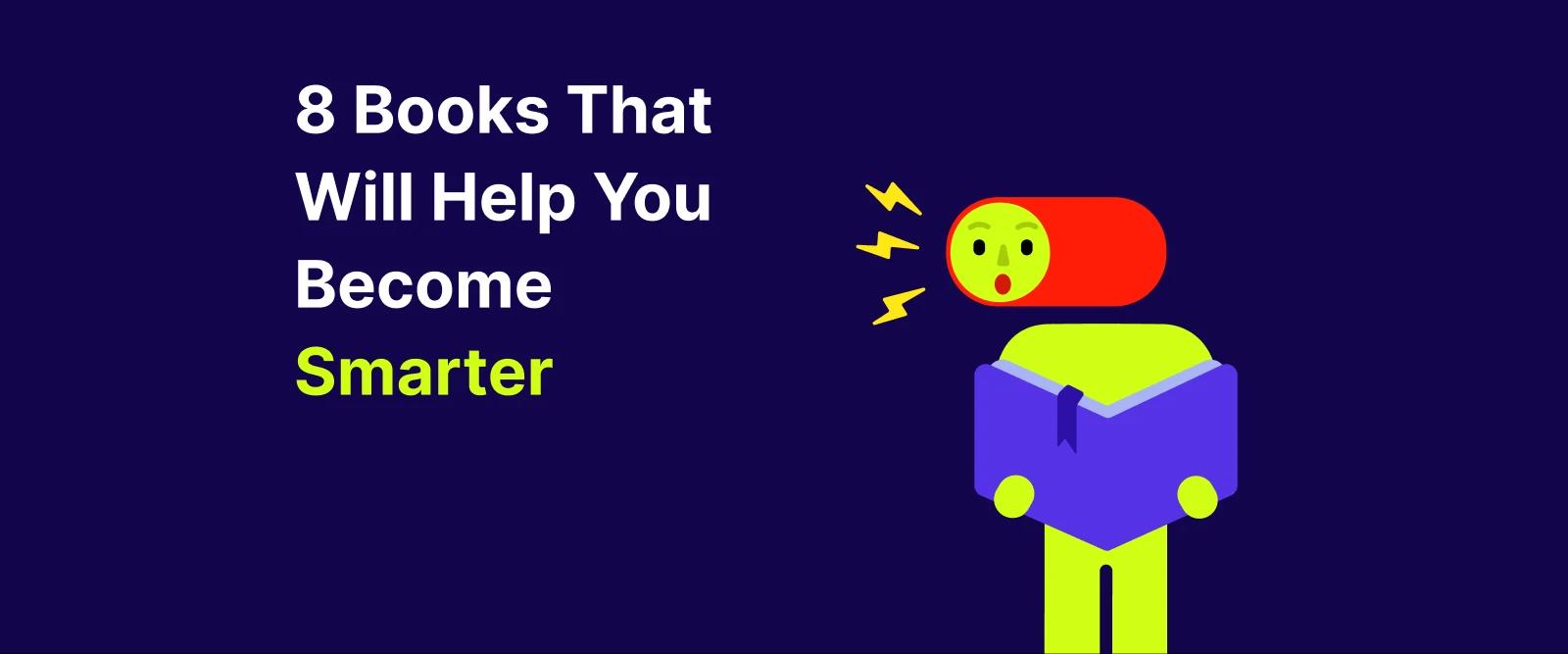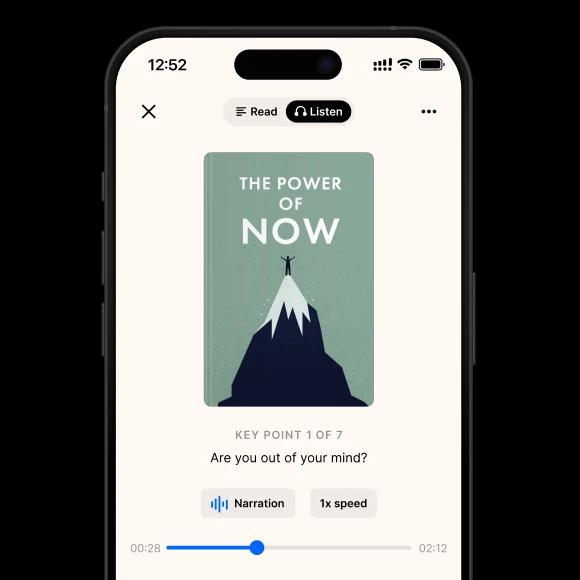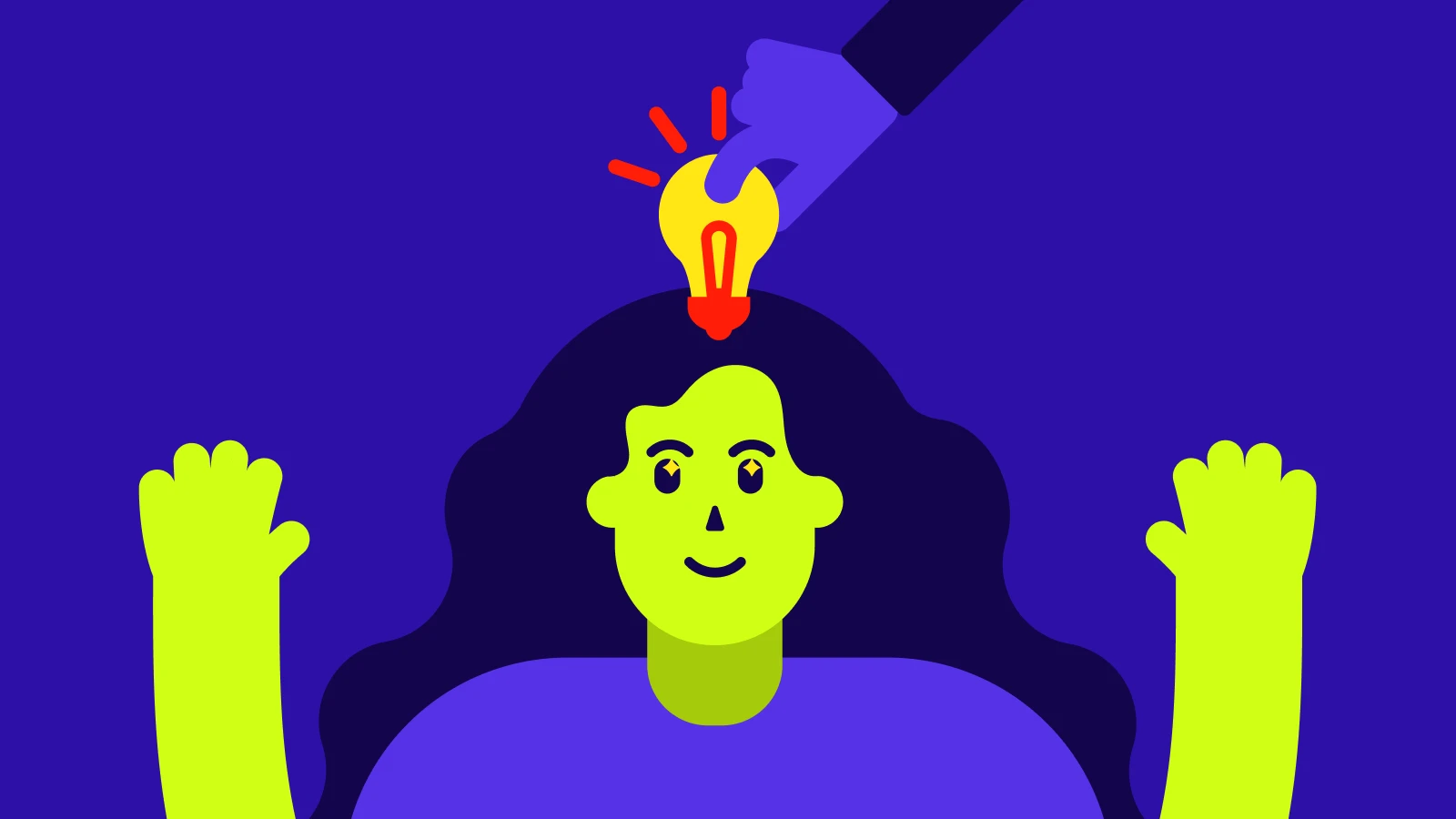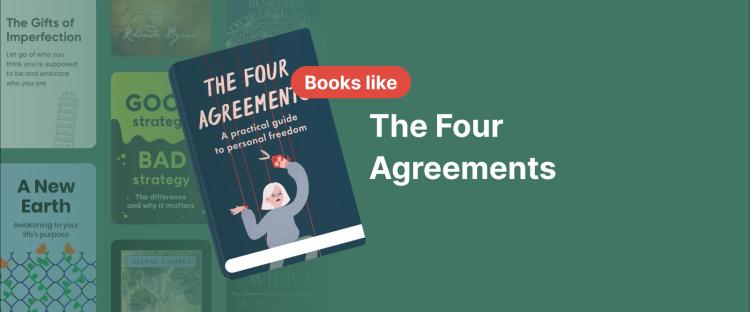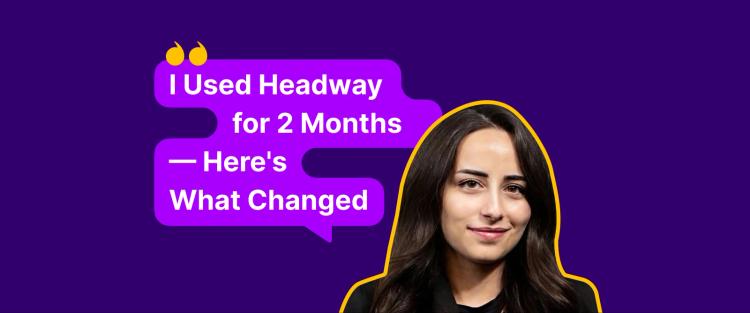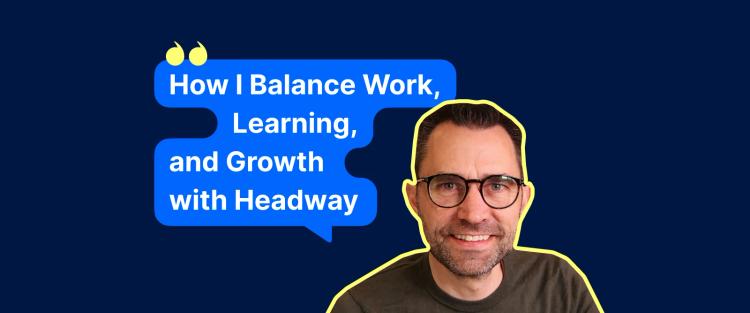Want to become smarter through reading? This handpicked list of 15 books will sharpen your thinking, expand your knowledge, and fuel your curiosity. These books cover topics like science, history, psychology, and self-improvement — so there's something for everyone.
Some of the best books to make you smarter are 'Sapiens' by Yuval Noah Harari, 'Atomic Habits' by James Clear, and 'Thinking, Fast and Slow' by Daniel Kahneman. Each one will teach you something new about the world or yourself.
Don't have time to read full books? The Headway app can help! It gives you short 15-minute summaries of popular books so you can learn faster and easier — even on busy days.
Quick benefits of reading smarter books:
Improves vocabulary and cognitive function
Boosts memory, focus, and emotional intelligence
Encourages lifelong learning across multiple disciplines
Explore this list to find the best books that make you smarter — and discover how easy it is to absorb powerful knowledge on the go.
15 best books to make you smarter
Looking for books that will boost your brainpower and broaden your understanding of the world? These top-rated titles are packed with insights on science, psychology, strategy, and personal development.
Whether you found them on Goodreads, heard them mentioned on a podcast, or saw them trending on Amazon, each of these smart reads will sharpen your thinking and expand your knowledge — one page at a time.
1. 'Sapiens: A Brief History of Humankind' by Yuval Noah Harari
'Sapiens' explores how early humans evolved into the modern world's dominant species. Yuval Noah Harari combines history, anthropology, and technology to explain major shifts in how we live, think, and relate to one another.
The book is frequently cited in educational YouTube videos and university courses. It's perfect for readers interested in the human journey — from ancient tribes to global economies and digital culture.
In this book, you'll learn:
What made Homo sapiens different from other species
How storytelling shaped civilizations
How money, religion, and laws were invented
What past trends reveal about our future
2. 'Deep Work' by Cal Newport
In 'Deep Work,' Cal Newport explains how focused, distraction-free work leads to better results and smarter thinking. He shows that people who learn how to work deeply — without constant emails, pings, and multitasking — produce higher-quality ideas and grow faster in their careers.
This book is perfect if you want to learn to focus better, think clearer, and spend your time on meaningful tasks. Newport shares real-life examples and strategies to help you avoid shallow work and build smarter habits around how you use your time.
In this book, you'll learn:
How to create a distraction-free environment
The dangers of multitasking on your productivity
Tools to cut out distractions like notifications and noise
Why attention is your most valuable skill in the modern world
3. 'Thinking, Fast and Slow' by Daniel Kahneman
In 'Thinking, Fast and Slow,' Daniel Kahneman explores how the human brain works when making decisions. He explains two systems: one that reacts instantly and one that thinks carefully. Together, they affect everything from money choices to social behavior.
This bestselling title is loved by fans of behavioral science and featured in TED Talks and psychology podcasts. It's a favorite for those interested in decision-making, mental shortcuts, and cognitive bias in real life.
In this book, you'll learn
How your brain makes snap judgments
What biases lead to poor decisions
Why logic and emotion often conflict
How to improve your thinking habits
4. 'Outliers' by Malcolm Gladwell
In 'Outliers,' Malcolm Gladwell digs into what makes some people more successful than others. He argues that it's not just talent or intelligence — it's often about timing, environment, and opportunity. He explores the "10,000-hour rule" and how culture shapes our success.
This book will help you think smarter about success and what really drives high performance. It challenges common beliefs and helps you see how understanding the hidden factors behind achievement can shape smarter choices in your own life.
In this book, you'll learn:
Why environment matters as much as effort
What the "10,000-hour rule" actually means
How successful people benefit from lucky breaks
Why cultural legacy influences how we learn and grow
5. 'The Art of War' by Sun Tzu
'The Art of War' is an ancient text filled with wisdom about strategy, planning, and leadership. Though written for military use, its lessons apply to modern life — from business deals to personal goals.
This classic is a staple on executive reading lists and is often quoted by business leaders and coaches. With advice about staying calm under pressure and thinking ahead, it's a smart pick for anyone interested in mental discipline and strategic thinking.
In this book, you'll learn:
How to manage conflict with strategy
The importance of flexibility in competition
Why knowing your opponent leads to success
Timeless tactics for decision-making under stress
6. 'The 48 Laws of Power' by Robert Greene
In 'The 48 Laws of Power', Robert Greene shares rules used by powerful people throughout history. Drawing from emperors, generals, and politicians, each law reveals a method for gaining control, influence, and advantage.
This book is a frequent topic in leadership podcasts and is widely reviewed on Amazon. It's not just about manipulation — it's about reading people, protecting yourself from control, and understanding how power dynamics work in modern life.
In this book, you'll learn:
What tactics powerful people use
How to protect your influence
When to speak up and when to stay silent
Historical stories that teach real-life lessons
7. 'Atomic Habits' by James Clear
'Atomic Habits' shows how small changes can lead to big results. James Clear explains how to break bad habits, build better ones, and keep going when motivation fades. His methods are backed by science and easy to put into practice.
This global bestseller is often featured in productivity podcasts and praised by entrepreneurs and students alike.
In this book, you'll learn:
How to stick to new routines
Why small wins create big changes
How to avoid common habit traps
Tools for tracking your progress
8. 'Meditations' by Marcus Aurelius
'Meditations' is a timeless collection of personal reflections by Roman emperor and Stoic philosopher Marcus Aurelius. Written nearly 2,000 years ago, the book still speaks to modern readers with its powerful insights on self-control, purpose, and resilience. It's widely recommended in philosophy forums, minimalism blogs, and by leaders who value emotional strength.
This ancient wisdom guide is a favorite among fans of self-awareness, mental clarity, and ethical living. Whether you're dealing with stress, indecision, or the challenges of leadership, Aurelius offers a calm, grounded mindset rooted in reason and virtue.
In this book, you'll learn:
How to stay calm amid chaos and uncertainty
Why your mindset matters more than outside events
Daily habits for building discipline and inner peace
What ancient Stoic philosophy teaches about modern life
9. 'Man's Search for Meaning' by Viktor E. Frankl
'Man's Search for Meaning' is a powerful memoir and psychological study by Viktor Frankl, a Holocaust survivor and psychiatrist. Frankl shows how finding purpose can help people go through even the most unimaginable hardships.
This life-changing read is a common choice in book clubs, mental health discussions, and university psychology courses. It's ideal for readers interested in resilience, personal growth, and discovering deeper meaning beyond material success.
In this book, you'll learn:
Why purpose is essential to human survival
How to respond to suffering with strength and dignity
The difference between pleasure and fulfillment
How mindset shapes your ability to overcome adversity
10. 'A Short History of Nearly Everything' by Bill Bryson
Bill Bryson's 'A Short History of Nearly Everything' is an original way to look at science. The book is breaking down complicated topics like geology, evolution, and astronomy in everyday language. It's a hit with curious readers who want to understand the natural world without a science degree.
This book is frequently recommended on Amazon for students and adults alike. It's also rated highly on Goodreads for its fun approach to subjects like chemistry and the origin of life. Bryson's writing is great for anyone exploring science through the lens of personal curiosity.
In this book, you'll learn:
How the universe and Earth were formed
Fascinating facts about natural history
What makes scientific discovery exciting
The role of chance in our existence
11. 'The Power of Habit' by Charles Duhigg
'The Power of Habit' explores how habits are formed, how they work in the brain, and how you can change them. Charles Duhigg shares fascinating stories and scientific research to show that small changes in your routine can lead to big results over time.
If you're looking to become smarter in how you live, work, and think, this book gives you the tools to rewire your habits. Whether it's waking up earlier, eating healthier, or studying more effectively, smarter habits start with understanding how your brain works.
In this book, you'll learn:
How to identify your habit loops
What makes a new habit stick
How organizations use habits to influence behavior
Smart ways to take control of your actions
12. 'A Brief History of Time' by Stephen Hawking
Stephen Hawking's 'A Brief History of Time' takes readers on a journey through the mysteries of the cosmos. Topics like wormholes, relativity, and time travel are explained in a way that's understandable for teens and adults alike.
Highly rated on academic reading lists and used in book clubs, this science classic dives deep into questions about reality, time, and the limits of knowledge. It's ideal for readers who love intellectual challenges and mind-expanding ideas.
In this book, you'll learn:
How time and space are connected
What black holes really do
Theories about the start of the universe
Why time may not be as simple as we think
13. 'Emotional Intelligence' by Daniel Goleman
Daniel Goleman's 'Emotional Intelligence' explains why being smart isn't just about IQ. EQ — your ability to manage your emotions and understand others — plays a huge role in success at school, work, and life.
If you want to become smarter in how you deal with people, solve conflicts, or handle stress, this book is a must-read. It shows how emotional skills can be learned and why they matter just as much, if not more, than academic smarts.
In this book, you'll learn:
What emotional intelligence is and why it matters
How to handle emotions in tough situations
Ways to build better connections with others
How to boost your confidence and empathy
14. 'Astrophysics for People in a Hurry' by Neil deGrasse Tyson
'Astrophysics for People in a Hurry' makes space science easy to digest. Neil deGrasse Tyson simplifies complicated topics like quantum mechanics and dark energy, making them perfect for people who are short on time but big on curiosity.
The book is praised by science communicators and often shared on Twitter and Instagram for its quotable insights. It's a great entry point into astrophysics for those who enjoy fast facts and short bursts of knowledge — a favorite among busy learners and science fans.
In this book, you'll learn:
Why the universe is expanding
How black holes form and behave
The structure of galaxies and stars
What modern physics says about our future
15. 'Make It Stick: The Science of Successful Learning' by Peter C. Brown et al.
'Make It Stick' breaks down the most effective ways to learn, based on cutting-edge research in cognitive psychology. Instead of relying on repetition, the authors show why techniques like retrieval practice, spacing, and mixing topics help you retain information much longer.
This book is a top pick in educational research circles and frequently mentioned in academic blogs and teacher training. It's perfect for students, lifelong learners, and anyone who wants to get better at learning — not just faster, but smarter.
In this book, you'll learn:
Why rereading and highlighting don't work
How to train your memory through retrieval
What makes learning stick over the long term
Study strategies backed by neuroscience and real-world testing
Use Headway to access books that make you smarter
Ready to grow smarter in less time? Try Headway — the app that gives you quick, 15-minute summaries of the world's smartest books. With over 1,700 titles across science, productivity, and personal growth, you'll build new skills fast and stay one step ahead.
Headway is a unique education experience for people who want to save time by learning on the go. With Headway, you get access to the key ideas from the real world's best books in concise summaries, and it will only take around 15 minutes to read or listen to. Instead of jumping head-first into the entire text, you'll get a clear picture of the text, the key concepts it discusses, and if it suits you.
Once you finish reading a segment or listening to the audio, you'll better understand the book's main ideas and decide if it is something you want to read in full! Download the Headway app and gain unlimited access to a library of over 1500+ audiobook summaries.
FAQs
What book should I read to become smarter?
In addition to the 8 books mentioned, you might consider "The Power of Habit" by Charles Duhigg, which offers insights into how habits shape our lives and won a Pulitzer Prize. An American author, Malcolm Gladwell's works, such as "Blink," are great for exploring critical thinking and decision-making. Randall Munroe's "What If?" is a fantastic choice if you enjoy exploring complex ideas with a touch of humor. Dale Carnegie’s "How to Win Friends and Influence People" is an all-time favorite for improving communication and relationships.
What books can increase your IQ?
All reading stimulates the brain and can increase your IQ, but certain books have been specifically designed to enhance your intelligence and broaden your understanding of the world. A couple of books to start off with include A Short History of Nearly Everything by Bill Bryson and Astrophysics for People in a Hurry by Neil DeGrasse Tyson. Check out the Headway app to learn the core concepts of these books faster and make the most out of your time!
Can you become intelligent by reading books?
Generally, reading boosts empathy, helps to build vocabulary, makes one aware of a wide range of themes and situations, and creates the ability to sense emotions and sentiments in others. Many studies published in Neurology further maintain that memory and brain function diminish with age, but regular reading may help delay that process and keep minds sharper for longer years.
What boosts IQ the most?
Reading nonfiction books, solving puzzles, getting enough sleep, and staying curious all help boost IQ. Learning new skills and practicing speed reading can train your brain to process information faster. Some Harvard studies also show that consistent reading of self-help and business books can support long-term mental growth.
How to get smarter fast?
Start with a short list of books known for brain-building — like Thinking, Fast and Slow or Sapiens. Practice speed reading, limit social media, and focus on one big idea each day. Even reading 15 minutes of a great book can help your brain stay sharp.
What is the most intellectual book to read?
A favorite book among deep thinkers is 'A Brief History of Time' by Stephen Hawking. It's challenging but rewarding, touching on space, time, and how the universe works. If you enjoy English literature and science, it's one of the most intellectual nonfiction books out there.
How to increase IQ to 120?
While IQ isn't easy to change, reading good books, solving logic games, and improving focus can help. Build habits with self help classics and dive into book recommendations from top thinkers in America or Harvard-level research. Daily learning pushes your brain closer to high performance.

